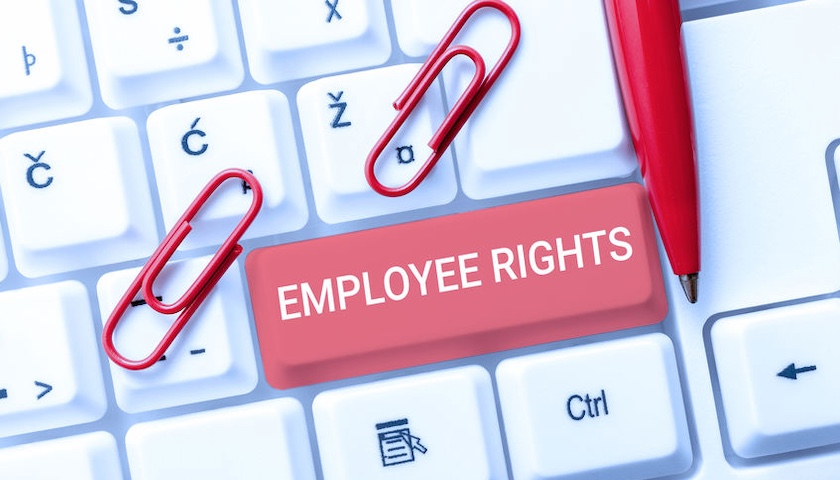Labour has unveiled its new Employment Rights Bill. We covered this when it was announced in the 2024 King’s Speech, but we’re now able to reveal more detail of what it contains.
The government says that the bill will ‘help deliver security and growth to businesses, workers and communities across the UK’. Even though the bill will take at least a couple of years to become law, it’s useful for employers to know what the bill contains. This will help them prepare for some significant changes.
What’s in the Employment Rights Bill?
The Employment Rights Bill will introduce a raft of changes. The government summarises these as:
“Our Employment Rights Bill will ban exploitative zero-hours contracts, end fire and rehire, and introduce basic employment rights from day one – like paternity and parental leave, and protection from unfair dismissal. It also introduces right to bereavement leave from day one.”
We’ve taken a closer look at the proposals and have summarised them below.
Stronger protection against unfair dismissal
Workers will be protected from unfair dismissal from their first day in a job. Currently, employees need to be employed for two years before they qualify.
Paternity, parental and bereavement leave
At the moment, women qualify for maternity leave from day one in a job. This will be extended to paternity leave and unpaid parental leave. Employers will also have to establish a bereavement leave policy, giving employees rights from their first day.
Stronger sick pay rights
Currently, employees qualify for sick pay on their fourth day of illness. This will change to day one.
The current regime allows people to claim statutory sick pay of £116.75 per week for up to 28 weeks. However, they can do this only if they earn an average of £123 per week. The Employment Rights Bill will remove this lower earnings limit.
Changes to zero-hours contracts
The government won’t abolish zero-hours contracts, but will take measures to prevent them being exploitative. Therefore, if someone works regular hours over a defined period, they’ll have the right to a guaranteed hours contract. Workers who prefer to stay on a zero-hours contract will be able to do so.
And end to fire and hire / fire and replace
Fire and hire (and fire and replace) practices will be banned in most cases. This means employers won’t be able to sack employees and then take them on again under worse terms and conditions. There will be some exceptions. For example, a business may be able to impose worse terms and conditions if not doing so puts them at risk of going bust.
A statutory probation period
The government plans to consult on a new statutory probation period. At the moment, it favours a period of nine months. Many employers are pushing for longer. Employees will be able to claim for unfair dismissal from day one, but there will be a ‘lighter touch’ approach to letting an employee go if things aren’t working out. This probably means that employees on probation can be sacked without a full process.
Flexible working
The Employment Rights Bill aims to make flexible working the default where practical.
Gender equality
Large employers will have to take steps to address gender equality. This will include supporting employees through the menopause. There will also be stronger protections for pregnant women and those returning from maternity leave.
Changes to the Minimum Wage
The government wants to make changes to the Minimum Wage. The Low Pay Commission will have to take the cost of living into account when setting Minimum Wage rates. It will also abolish the age bands that set a lower wage for younger workers.
Fair Work Agency
The Employment Rights Bill proposes setting up a body called the Fair Work Agency. This will bring together various enforcement agencies. It’s not yet clear exactly what remit the new agency will have, but it will certainly enforce rights such as holiday pay.
Other upcoming changes
There are various things missing from the Employment Rights Bill that Labour promised in the run-up to the 2024 general election. These include a ban on employers contacting employees out of hours (apart from in exceptional situations) and moves to end pay discrimination. These, along with various other proposals, will be implemented separately.
Do I need to do anything about the Employment Rights Bill?
If you are an employer, you don’t need to do anything about the proposed bill just yet. However, it would be sensible to keep an eye on how it evolves over the next couple of years. For example, once the government has decided on the length of the new statutory probation period, it will help you to plan for it. From an accountancy point of view, you’ll need to make sure you continue to comply with Minimum Wage rules. If you’d like help with this, you could consider our payroll outsourcing service.
About Jon Pryse-Jones
Since joining THP in 1978, Jon Pryse-Jones has been hands on with every area of the business. Now specialising in strategy, business planning, and marketing, Jon remains at the forefront of the growth and development at THP.
An ideas man, Jon enjoys getting the most out of all situations, “I act as a catalyst for creative people and encourage them to think outside the box,” he says, “and I’m not afraid of being confrontational. It often leads to a better result for THP and its clients.”
Jon’s appreciation for THP extends to his fellow team members and the board. “They really know how to run a successful business,” he says. He’s keen on IT and systems development as critical to success, and he continues to guide THP to be at the cutting edge and effective.
Read more about Jon Pryse-Jones More posts by Jon Pryse-Jones












